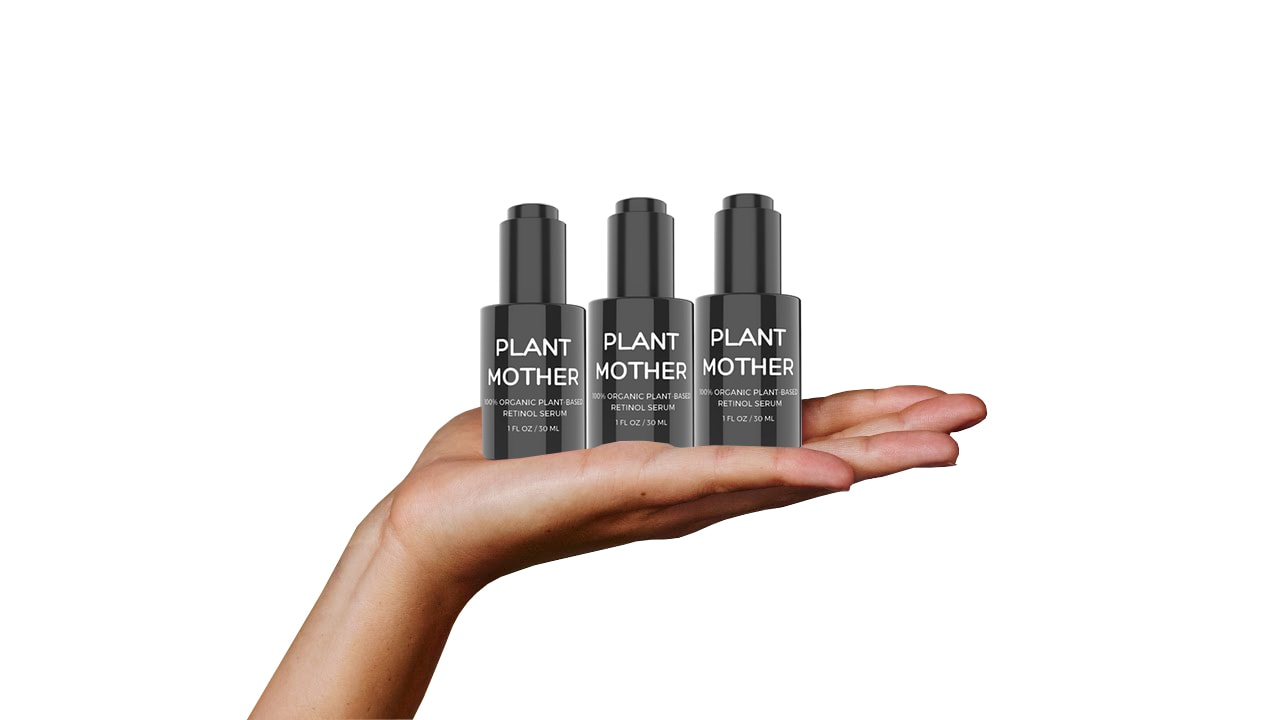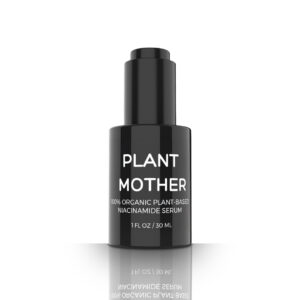Niacinamide And Retinol: Everything You Need To Know About This Skincare Duo

Niacinamide and retinol are two skincare ingredients that function in different ways, but when they are paired together, they’re unstoppable. Finding ingredients that are beneficial to the skin is easy. The hard part is knowing what ingredients can be used together and what ingredients you should combine or not.
Here is an outline of what will be discussed in the article:
- Niacinamide and Retinol
- The Differences Between Niacinamide and Retinol
- Are There Natural Alternatives For Niacinamide and Retinol?
- Benefits of Niacinamide
- Benefits of Retinol
- Which is Better For Acne Scars?
- Can Niacinamide and Retinol Be Used Together?
- Tips For Use
- Best Products with Natural Niacinamide and Retinol
- Final Thoughts
NIACINAMIDE AND RETINOL
Niacinamide is a form of an essential nutrient called vitamin B3. It comes from niacin or nicotinic acid which is also a form of vitamin B3. Niacin naturally occurs in foods like fish, meat, and nuts. Niacinamide is also a skincare ingredient, a form of B3 vitamin applied topically.
Retinol is a form of vitamin A and it is also a type of retinoid. It is not difficult to find it in skincare, it can be found in moisturizers, serums, and creams. Retinol can be purchased over-the-counter or prescribed by a doctor. It comes in different strengths and formulas.
THE DIFFERENCES BETWEEN NIACINAMIDE AND RETINOL
When it comes to fighting aging or treating acne, the recommended ingredients that pop up in the search bar are niacinamide and retinol. They have similar benefits, but they also have distinct and unique characteristics that set each other apart.
Here are the differences between niacinamide and retinol:
- Retinol is typically stronger than niacinamide
- Prescription-based retinol can cause dryness, irritation, redness, and skin purging
- They both a very beneficial vitamins, one is vitamin A and the other vitamin B3

CAN NIACINAMIDE AND RETINOL BE USED TOGETHER?
Niacinamide and retinol are a match made in heaven. This skincare pairing’s benefits perfectly balance each other out. You can also use these two ingredients separately, but when they are used together (niacinamide serum in the morning and the retinol during the night) they produce great results for the skin.
ARE THERE NATURAL ALTERNATIVES FOR NIACINAMIDE AND RETINOL?
Some niacinamide and retinol formulas contain synthetic or harmful chemicals so it is important to be wary of those ingredients because they can easily be absorbed into your bloodstream. Luckily there are plant-based alternatives for both niacinamide and retinol. If possible, you should always choose these healthy options over others.
Niacinamide is very effective when drived from plant-based ingredients. Plant Mother’s Niacinamide serum is rich in the most active variety of vegan Vitamin B, B3 niacinamide, and quarcetin. That’s why it is so powerful in fighting free radicals, reducing UVA/UVB damage, and improving photo aging. The serum also contains 2 varieties of seabuckthorn oil and three varieties of rosehips. Rosehip is a great organic pairing to botanical niacinamide. It is a natural ingredient rich in vitamin C and contains carotenoids and ascorbic acid. Rosehips help fight hyperpigmentation and protect the skin from sun damage. Rice bran is another natural source of vitamin B complex and niacinamide in its plant-based form.
On the other hand, bakuchiol is a wonderful plant-based alternative for retinol. It is a natural botanical and antioxidant derived from the plant that is rich in antioxidants. The plant’s seeds and leaves have strong anti-aging and antioxidant properties. Therefore, it is important to know all the benefits of bakuchiol and retinol.
Plant Mother’s Retinol serum contains rosehip seed, bakuchiol, together with over 20 other nutritious botanicals. The serum contains 100% organic, plant-based retinol and is freshly made from anti-aging botanicals grown in the brand’s sustainable garden in Miami, Florida. Unlike other retinols, this retinol serum doesn’t cause any redness, dryness, or irritation usually associated with retinol use. Moreover, this retinol serum doesn’t cause any sun sensitivity.
BENEFITS OF NIACINAMIDE
Niacinamide is an antioxidant that is known for its anti-aging benefits. This ingredient is also known to be very gentle on the skin. Niacinamide boosts healthy cell production and brightens the skin. It also soothes irritation and reduces redness. It is good to use niacinamide and retinol together as these two improve each other’s effectiveness.
These very qualities are what make niacinamide the perfect skincare pairing with retinol. Its ability to calm the skin helps counteract the dryness or irritation that can be caused by some chemical / synthetic retinols.
BENEFITS OF RETINOL
Retinol is a powerful ingredient that boosts skin cell rejuvenation and also has anti-aging benefits similar to niacinamide. It reduces hyperpigmentation and smoothes out wrinkles and fine lines.
If you use synthetic product, it is recommended to incorporate retinol into your skincare slowly. Best would be a few nights a week or every other night. However, if you opt for a natural, plant-based retinol, you can use it every night from the first time you use it.
WHICH IS BETTER FOR ACNE SCARS?
Retinol is better. Getting rid of acne scars can be a long journey, but slowly and surely, with time and the right ingredient, the results will be worth it.
Retinol helps improve the appearance and texture of the skin over time. It acts as an exfoliator with small molecules that goes deep into the skin to fight free radicals and increase cell turnover. Skin cell turnover is important for diminishing the appearance of acne scars because it produces new skin cells to replace existing ones. Additionally, retinol and niacinamide both help with clogged pores by cleaning them of debris and making the skin texture smooth and healthy.
Patience is key when it comes to acne scars (same as with anti-aging). Retinol is not a quick fix for acne scars, but it works over time to make your texture smooth again.

TIPS FOR USE
Plant-based retinol and niacinamide serums offer a gentler, more holistic alternative to their synthetic counterparts, often reducing the risk of irritation, dryness, and sensitivity—especially for those with reactive or sensitive skin. Derived from natural sources like bakuchiol (a retinol alternative) and plant-extracted niacinamide, these formulations typically include additional botanical antioxidants and anti-inflammatory compounds that support skin health while minimizing harsh side effects. Moreover, they’re usually free from synthetic preservatives and fragrances, making them a cleaner choice for individuals seeking non-toxic, eco-conscious skincare with effective anti-aging and brightening benefits.
FINAL THOUGHTS
The quality of niacinamide and retinol vary from company to company. Most companies use synthetic, ingredients that can be too harsh and irritating to the skin. Therefore, it’s best to choose plant-based alternatives to niacinamide and retinol. These are safer, healthier, and also made without animal-derived ingredients.
Plant Mother’s 100% organic, plant-based niacinamide and retinol serums are best for natural, vegan sources of niacinamide and retinol. Both serums are packed with antioxidants, vitamins, and essential fatty acids. And, an added bonus, they’re made in recycled and reusable packaging, with zero waste and no plastic.
MEDICAL DISCLAIMER
This content is for informational and educational purposes only. It is not intended to provide medical advice or to take the place of such advice or treatment from a personal physician. All readers of this content are advised to consult their doctors or qualified health professionals regarding specific health questions. The publisher of this content does not take responsibility for possible health consequences of any person or persons reading or following the information in this educational content. All viewers of this content, especially those taking prescription or over-the-counter medications, should consult their physicians before beginning any nutrition, supplement, skincare product, or lifestyle program.
REFERENCES:

